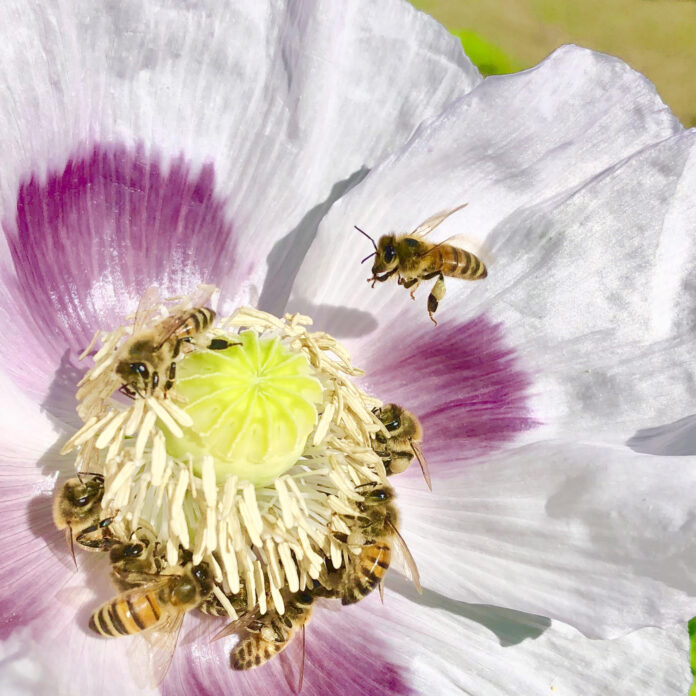A Slocan Valley non-profit society is working on a new approach to beekeeping that it hopes could improve survival rates against a pernicious parasite.
Kate Mizenka, the founder and chair of the Elk Root Conservation Farm Society in Vallican, says they are developing a prototype to help beekeepers manage varoa mites, which breed in hives during the summer and can decimate colonies over the winter.
“We are working on a sustainable apiary model that takes traditional beekeeping and turns it on its head,” she says.
“We’re looking at new ways of treating bees very humanely in the sense of having lots of forage available for them, to protect not only honey bees but wild bees and new housing variations to deal with climate change as well as different management techniques to improve bee health overall.”
They have received $33,750 in provincial funding to build and pilot a “user-friendly beehive accessory” to improve mite management, which could potentially be used not only locally but provincially, nationally, and internationally.
Mizenka says they have already had success with their own bees, who all survived last winter, whereas mortality rates in some parts of Canada were only 50 per cent.
While they did some earlier research, the prototyping project started in April. She says they are testing their market options for various types of treatment, which could include biocontrol, such as the use of pseudoscorpions, a species native to the West Kootenay.
Mizenka says their goal is to have the prototype finished at the end of December, then seek further funding for field testing. Long-term, they would like to find a partner who could help bring the product to market.
“The model we’re creating is absolutely a trailblazing, one-of-a-kind system,” she says. “So it’s very exciting … We’re really the one and only place doing it.”
Although their work is driven by volunteers, they have been able to create some jobs for youth. On this project, they hired two interns, one a Selkirk College grad and another from the University of Victoria.





